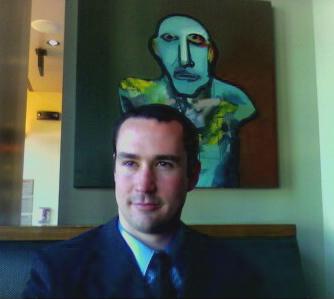At one point or another, most people will experience a greater or lesser period of financial woes in their lives. Being college students, we are especially susceptible to this. So what do you do when you can't make ends meet? I, for one, have a talent for humility which has served me well throughout many a crisis. I take out a loan, I cut back on expenses, I do what I have to do to get by. Most importantly, however, I don't bitch about it. I had the incredible luck to be born into the richest, most prosperous free nations in all of history. If I'm short on cash because unexpected costs came up, I will suck it up and move on.
What I don't like is when people whine and bitch about their luck. There are about a million things out there that you COULD complain about, but I think I have a better idea: shut the hell up. Don't tell me about how terrible gas prices are - go buy a Vespa and shut your pie hole. But before I go off on this rant, there is something even worse than complaining about your bad luck which I must discuss, and that is lacking humility when you ask for help.
When General Motors CEO and chairman Rick Wagoner recently went to the nation's capitol to request a financial bailout for the flagging American auto industry (including several Texas factories), did he do so with humility? Did he beg, Oliver Twist style, holding an empty bowl in his fingerless-gloved hands and tremblingly ask, "please sir, I'd like $25 billion in taxpayer funds to cover my ass?" To the contrary, Mr. Wagoner took one of the company's $36 million corporate jets to Washington to briefly and unenthusiastically let Congress know that he needs some cash. Instead of taking a prime opportunity to show off their new hybrid, Wagoner spent another $20,000 on this one meeting alone.
Now let’s just forget for a minute the fact that Detroit wrought this upon themselves. Let’s forget how Ford, GM and Chrysler - a.k.a. "The Big 3" - have coddled the unions for years, paying the highest auto worker salaries in the world. Lets forget how these excessive reimbursements have brought The Big 3's profit margins down year after year. And most importantly, lets forget that despite their salaries, Americans make unreliable, fuel-inefficient beasts that have earned monikers like Fix Or Repair Daily. Detroit has painted itself into a corner, and yet the executives can't step down off their high horse to admit that they f___ed up.
You know what my answer as a Congressman would be? "No, now get the hell out of here. You're poor? So explain the jet, then. Explain your own $27 million salary. Explain why your business model is so outdated that the people of your own country don't buy your cars. Tell me exactly why a Civic lasts 300,000 miles, but my Focus needs a new engine after less than a fifth of that? Now take your ass back to Detroit, fix your business model, and tell your workers to expect a pay cut. These guys fasten bolts for a living, they can't realistically expect to make $71 an hour. But if you think I'm going to make everyone pay for your mistakes, you've got another thing coming. Bailing out those ass clowns in the mortgage industry was more than enough. This is capitalism: you screw up, you pay for it."
Wednesday, November 19, 2008
Thursday, November 6, 2008
Critique of the editorial, "Photo Fraud"
In this article posted to the blog, Lone Star Debate, the author makes a clear and compelling case for the mandatory use of a photo ID when voting. Throughout the article, the author's use of vocabulary and sentence structure shine through, indicating a professional attitude. He carefully introduces the subject not only in description, but with an accompanying political cartoon which helps to set the tone of his piece.
The focus of this editorial is that there is no good reason not to require a photo ID. The author elaborates on his thesis by reminding the reader of the myriad times that they are required to produce ID daily, and by begging the question, "[i]s there less responsibility involved in voting than, say, renting a movie at Blockbuster?" The author concludes his piece by astutely exploring the likely political motivations behind such a law. "They’re not suggesting that illegal aliens should be able to cast a ballot, are they?? Of course they are," states the author, referring to Democratic opposition to the requiring of ID. By setting a clear logical path for the reader to follow, this article's author succeeds in convincing many open-minded readers that to require a voter to show their photo ID would only help in verifying the legitimacy of coming elections.
The focus of this editorial is that there is no good reason not to require a photo ID. The author elaborates on his thesis by reminding the reader of the myriad times that they are required to produce ID daily, and by begging the question, "[i]s there less responsibility involved in voting than, say, renting a movie at Blockbuster?" The author concludes his piece by astutely exploring the likely political motivations behind such a law. "They’re not suggesting that illegal aliens should be able to cast a ballot, are they?? Of course they are," states the author, referring to Democratic opposition to the requiring of ID. By setting a clear logical path for the reader to follow, this article's author succeeds in convincing many open-minded readers that to require a voter to show their photo ID would only help in verifying the legitimacy of coming elections.
Subscribe to:
Comments (Atom)


